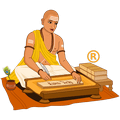























Sunrise06:44
Sunset18:28
Moonrise08:09
Moonset20:56
Shaka Samvat-7782 Durmukha
Vikram Samvat-7647 Nala
Gujarati Samvat-7648 Plavanga
Amanta MonthAshadha
Purnimanta MonthAshadha
WeekdayShukrawara
PakshaShukla Paksha
TithiTritiya upto 23:50
YogaSiddhi upto 01:29, Feb 29
KaranaTaitila upto 12:32
KaranaGaraja upto 23:50
Pravishte/Gate30
Rahu Kalam11:08 to 12:36
Gulikai Kalam08:12 to 09:40
Yamaganda15:32 to 17:00
Abhijit12:13 to 13:00
Dur Muhurtam09:05 to 09:52
Dur Muhurtam13:00 to 13:47
Amrit Kalam14:59 to 16:33
Varjyam04:10, Feb 29 to 05:43, Feb 29
Notes: All timings are represented in 24-hour notation in local time of Warangal, India with DST adjustment (if applicable).
Hours which are past midnight are suffixed with next day date. In Panchang day starts and ends with sunrise.



 Mithuna 28:21+
Mithuna 28:21+ Ardra 09:46
Ardra 09:46

 Karka
Karka Pushya 10:47
Pushya 10:47

 Karka 10:42
Karka 10:42 Ashlesha 10:42
Ashlesha 10:42

 Simha
Simha Magha 10:14
Magha 10:14

 Simha 15:11
Simha 15:11 P Phalguni 09:26
P Phalguni 09:26

 Kanya
Kanya U Phalguni 08:18
U Phalguni 08:18

 Tula 19:51
Tula 19:51 Vishakha 25:21+
Vishakha 25:21+

 Vrishchika 21:27
Vrishchika 21:27 Jyeshtha 21:27
Jyeshtha 21:27

 Makara
Makara U Ashadha 17:50
U Ashadha 17:50

 Kumbha
Kumbha Dhanishtha 18:27
Dhanishtha 18:27

 Kumbha
Kumbha Shatabhisha 19:53
Shatabhisha 19:53

 Kumbha 15:25
Kumbha 15:25 P Bhadrapada 22:00
P Bhadrapada 22:00

 Meena
Meena U Bhadrapada 24:40+
U Bhadrapada 24:40+

 Meena 27:41+
Meena 27:41+ Revati 27:41+
Revati 27:41+

 Mesha
Mesha Ashwini 30:48+
Ashwini 30:48+

 Mesha
Mesha Bharani
Bharani

 Vrishabha
Vrishabha Krittika 12:21
Krittika 12:21

 Mithuna
Mithuna Mrigashira 15:54
Mrigashira 15:54

 Karka 16:33
Karka 16:33 Ashlesha 16:33
Ashlesha 16:33

 Simha
Simha Magha 15:47
Magha 15:47In Hindu Calendar, the day starts with local sunrise and ends with next day local sunrise. As sunrise time is different for all cities, Hindu Calendar made for one city is not valid for any other city. Hence it is important to use location based Hindu Calendar, like this website. Further, each Hindu day consists of five elements, which are called angas. These five elements are -
In Hindu Calendar, all five elements together are called Panchang. (In Sanskrit: Panchang = Pancha (five) + Ang (part)). Hence Hindu Calendar which shows all five elements for each day is called Panchang. In South India Panchang is known as Panchangam.
When Hindu Calendar includes Muslims, Sikh, Christian, Buddhist and Jain festivals, including national holidays, it is called as Indian Calendar.